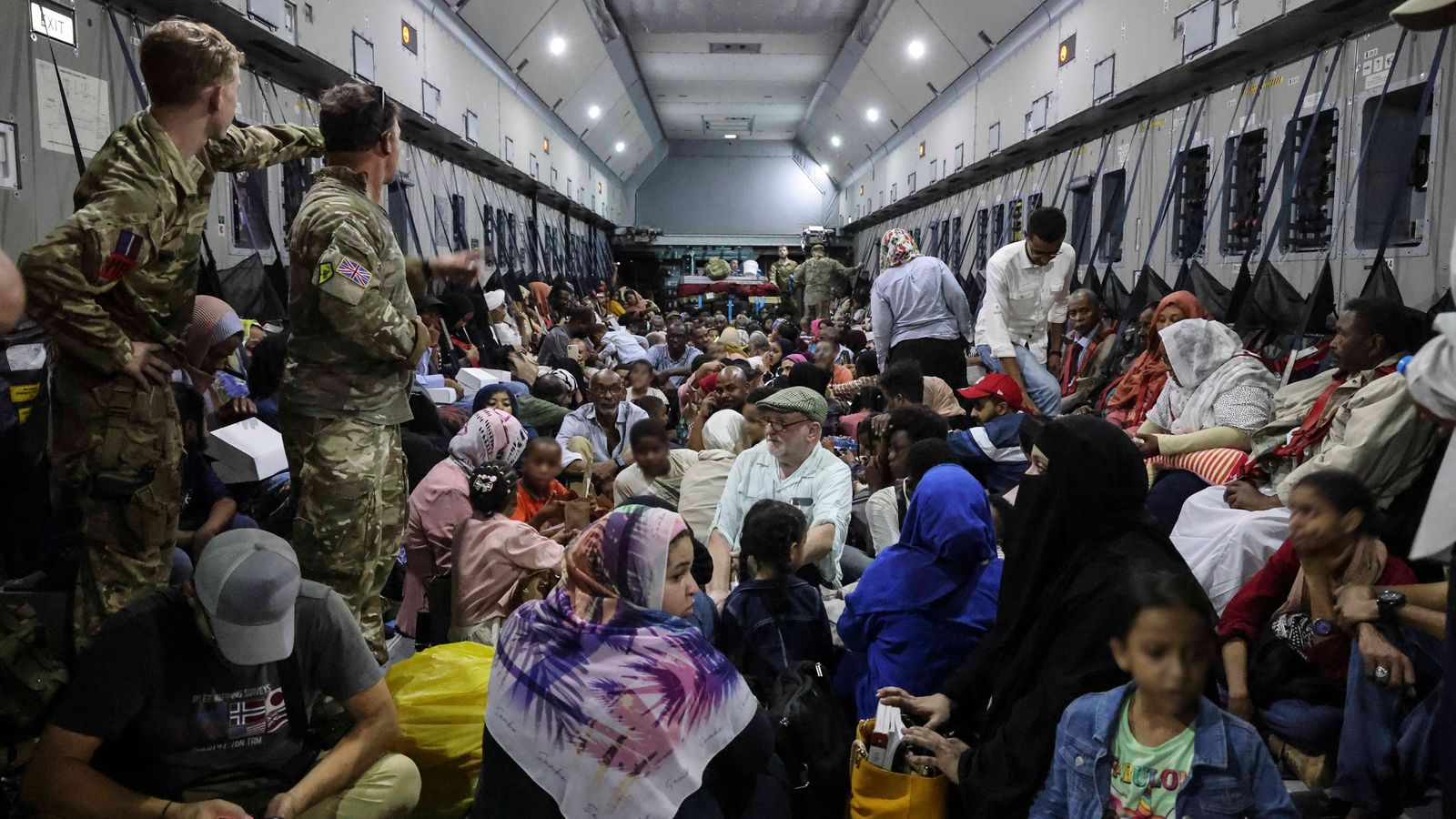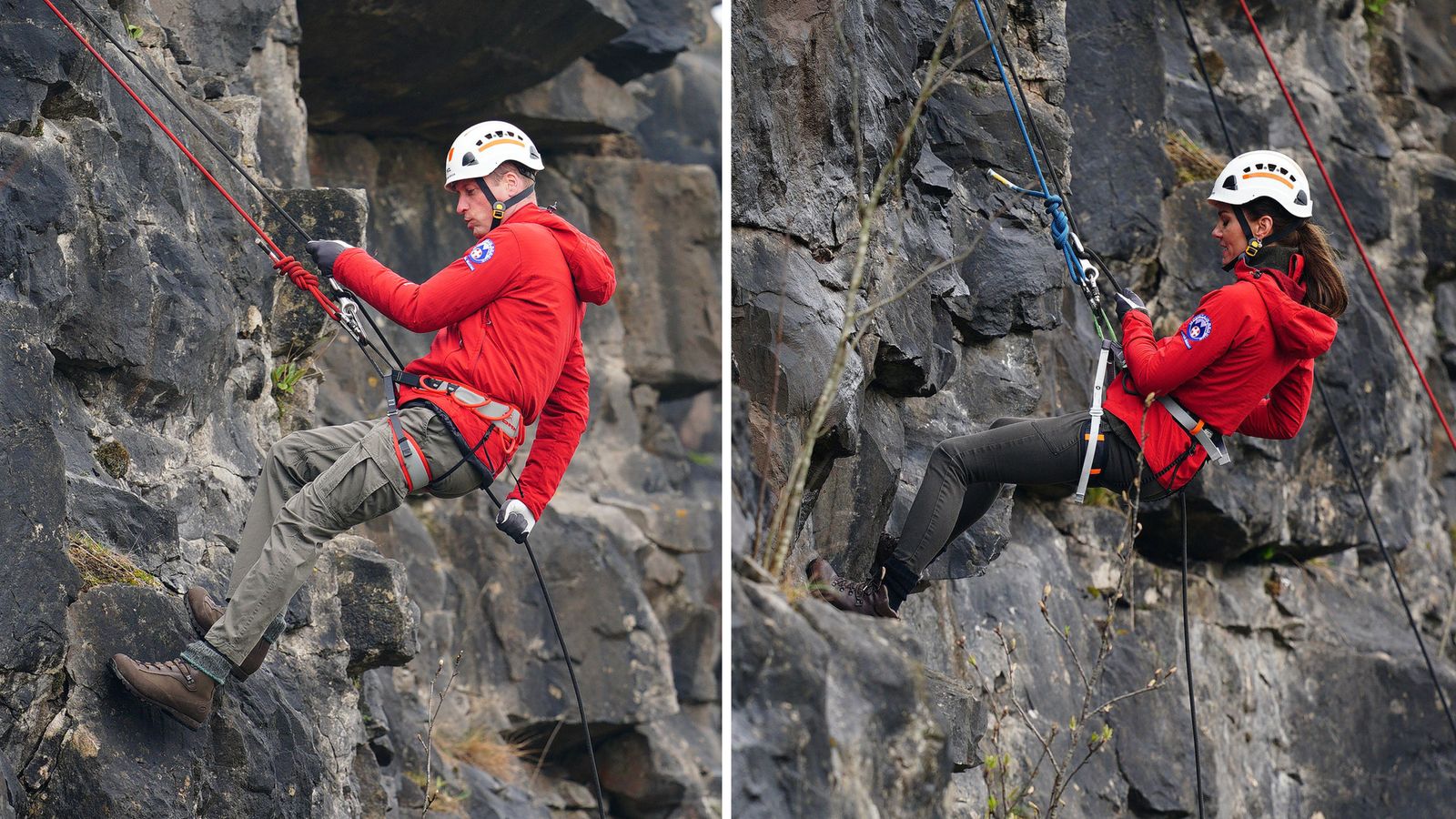Sudan’s rival factions have agreed to extend a 72-hour ceasefire – just hours before the original truce was due to end.
First the country’s army, then its rivals in the paramilitary Rapid Support Forces (RSF) agreed to the extension brokered by the US and Saudi Arabia, it was announced on Thursday evening.
But violence continued in the capital Khartoum and raged in the western Darfur region.
It came as the British evacuation mission rescued at least 897 people.
The truce will start at midnight tonight local time (11pm UK time), as the White House said it was concerned by ceasefire violations and warned the situation “could worsen at any moment”.
Eight British flights had left Sudan as of 4pm today, with the Foreign Office promising “further flights to come”.
More than 2,000 British nationals in Sudan have registered under the evacuation plans. Earlier this week, the UK government said around 4,000 British passport holders were in the country.
Please use Chrome browser for a more accessible video player
The Foreign Office, which has not said how many of the evacuees are British, urged citizens to head to an airstrip before the ceasefire was due to end.
Military chiefs say they have the capacity to lift at least 500 people per day out of the Wadi Saeedna airfield near the capital, Khartoum.
Time is ticking down on the first truce between Sudan’s two warring factions, and there are fears clashes that have killed hundreds will continue.
The foreign secretary warned Britons stranded in Sudan it could be “impossible” to evacuate them when the ceasefire expires – as he urged people to head to the airstrip as soon as possible.
James Cleverly told Sky’s Kay Burley: “We cannot predict exactly what will happen when that ceasefire ends, but what we do know is that it will be much much harder – potentially impossible.”
“There are planes, there is capacity – we will lift you out. I’m not able to make those same assurances once the ceasefire has ended.”
“So if you’re planning to move, move now,” he said.
The Foreign Office also said this afternoon that the UK ambassador to Sudan, Giles Lever, has been deployed to the Ethiopian capital, Addis Ababa.
He will lead the UK’s diplomatic efforts in the region “to bring fighting to an end in Sudan”.
The ambassador was not in Khartoum when the fighting broke out with newspaper reports saying he was on holiday at the time.
At least 512 people have died and thousands injured since the power struggle between the army and RSF descended into fighting almost two weeks ago.
Please use Chrome browser for a more accessible video player
Only British passport holders and immediate family members with existing UK entry clearance are eligible for evacuation.
However, Mr Cleverly said a “few nationals of other countries” had also been allowed on its planes out of Sudan.
RAF planes are evacuating people to Cyprus, where they are met by Foreign Office officials and medics, before being flown to London Stansted on commercial jets.
The government is also working on a sea evacuation route from Port Sudan and the HMS Lancaster has been dispatched. Other countries have been using the city to get people out.
Please use Chrome browser for a more accessible video player
Read more:
How can British nationals get to the RAF base?
Traumatised Sudan evacuees describe ‘horrendous’ scenes
Explainer: What’s behind the Sudan fighting?
Please use Chrome browser for a more accessible video player
Some have criticised the government for being too slow to start its evacuation plan, with countries such as Germany completing evacuations on Tuesday night.
UK diplomats and their families were evacuated from Sudan in a mission involving elite troops at the weekend.
Be the first to get Breaking News
Install the Sky News app for free
Africa minister Andrew Mitchell has said Britain’s evacuation effort is “going very smoothly” but warned we are “in the hands of the ceasefire”.
Click to subscribe to the Sky News Daily wherever you get your podcasts
The fighting has pushed Sudan’s population to near breaking point, with food becoming scarce, electricity cut off across much of the capital and other cities, and many hospitals shut down.
Multiple aid agencies have had to suspend operations and the UN refugee agency said it was gearing up for potentially tens of thousands of people fleeing to neighbouring countries.









